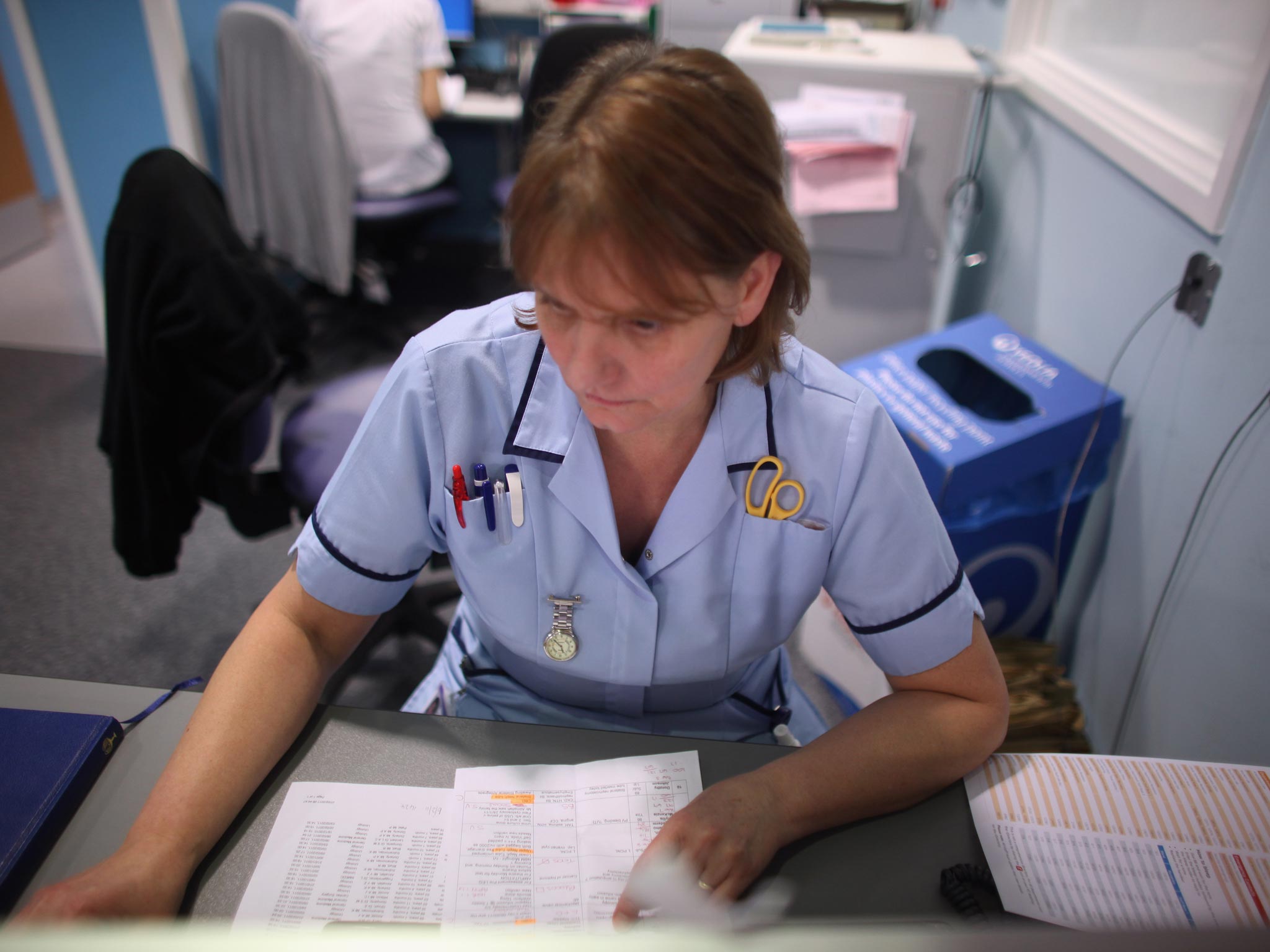NHS workers considering strike action as Health Secretary Jeremy Hunt denies half his workforce a 1% pay rise

NHS workers’ pay should be linked to performance, not time in the job, Jeremy Hunt has said, as he announced that more than half the workforce will be denied a widely anticipated one per cent pay rise.
Unions said they were consulting their members over strike action and warned that performance-related pay could lead to a “production line” approach on hospital wards.
As more than 600,000 health workers found out they would be denied a below-inflation one per cent pay rise this year, the Health Secretary said that the current NHS payment model, which sees most nurses and other employees’ pay increase according to their level of experience, was “mad” and only benefited higher-paid staff.
Public sector workers, including the armed forces, prison officers and judges, will all receive a one per cent pay rise, as will NHS workers who do not already receive incremental pay increases linked to their experience level. However, the Government rejected advice from the NHS Pay Review Body (NHS PRB) that the salary boost should apply across the board, claiming it was “unaffordable”.
Unions said that the NHS was being singled out and accused the Government of a “direct attack” on healthcare staff. Unite is consulting its 100,000 health service members on industrial action, while the GMB, which has 450,000 health members, also said a strike was now more likely.
Mr Hunt told the BBC that he wanted to see major reform of the way NHS employers set their salaries, saying “it shouldn’t be about time served, it should be how well you look after patients.”
But Rehana Azam, national officer for the GMB Union, told The Independent that performance-related pay would take the NHS into “dangerous territory”, and accused the Health Secretary of implying that healthcare workers were not working hard enough.
“It’s not a fair way of rewarding staff in the NHS,” she said. “It’s like a production line mentality – your pay will depend on your output at the end of the day. But how do you judge how the care you’ve offered a patient should be compensated? If that patient lives on for the next few years? Did that care on that morning enable that? How do you measure it?
“NHS workers will be leaving their workplaces thinking: ‘why are we being singled out?’”
The Department of Health’s claim that incremental progression represented a two per cent increase in salary costs each year was challenged by the independent NHS Pay Review Body, which had said its net cost was in fact 0.6 per cent and may well be lower this year as more staff reach the top of their pay band.
The NHS PRB had also warned that patient care might suffer “through declining staff morale and engagement” if the one per cent pay rise, which was widely anticipated in Government statements up till now, was denied.
Mr Hunt said that the pay rise was “unaffordable”, adding that 6,000 nursing jobs would “probably” have had to be cut if it had gone ahead. The Government has attached great importance to improving staffing levels in the NHS, in an attempt to prevent any repeats of the Mid Staffordshire hospital scandal, where low nurse cover was cited as a reason for major care failings. However, many NHS hospital trusts now say they are struggling to afford government demands to increase staffing.
But John Appleby, chief economist at the influential King’s Fund think tank, told The Independent that holding down staff pay risked affecting morale, which could have the effect of a harming patient care regardless of staffing levels. He added that it was becoming “increasingly clear” that the next government would have to find extra funding for the NHS to avoid such dilemmas.
“The alternative is to accept significant cuts to services that will harm patient care,” he said.
Subscribe to Independent Premium to bookmark this article
Want to bookmark your favourite articles and stories to read or reference later? Start your Independent Premium subscription today.

Join our commenting forum
Join thought-provoking conversations, follow other Independent readers and see their replies